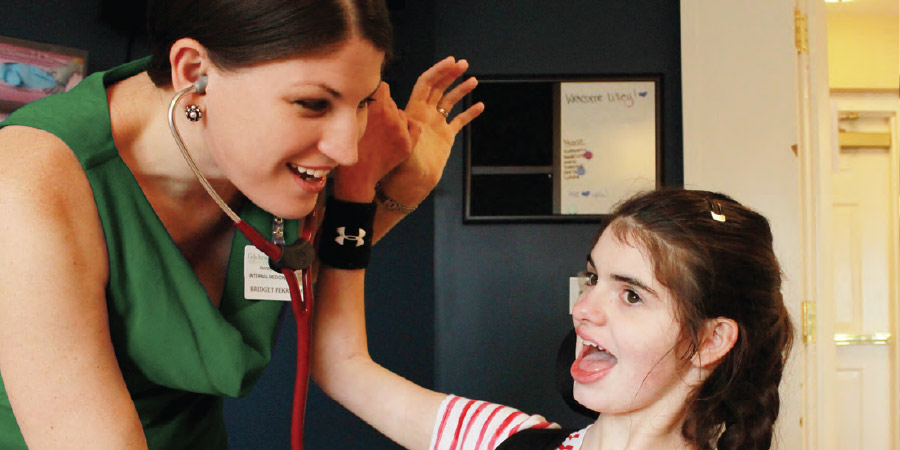Gilchrist Story Ideas - October 2018
November 3, 2018
Annually, nearly 1.5 million people are living with a life-limiting illness and receive care from hospices in the United States. November is National Hospice and Palliative Care Month and Gilchrist, an affiliate with the GBMC (Greater Baltimore Medical Center) HealthCare system, wants to raise public awareness about hospice and palliative care. To pursue any of the below story/segment ideas, please call John M. Lazarou at 443-849-2126 or email jlazarou@gbmc.org or Kristina Rolfes at 443-849-8216 or KROLFES@GilchristCares.org
- Hospice or Palliative Care: What’s The Difference?
- Using Integrative Medicine To Help Palliative Care And Hospice Patients
- Local Mother Finds A Greater Sense Of Purpose
- Should Children Have A Say In Their Medical Care?
- Offering Help Those Who Are Dealing With Death And Bereavement
- Handling With Care
- Gilchrist’s Newly Opened Inpatient Pediatric Hospice Is Helping With The Unknown Road Ahead
Hospice or Palliative Care: What’s The Difference?
Every year, many Americans are facing a serious illness, and as a result have probably heard the words palliative care or hospice. Hospice, a frightening word for many people, and palliative care are similar and in choosing either it does not mean giving up. Instead, it can help people live their lives to the fullest—in comfort rather than pain and spending precious moments with loved ones at home, if possible, instead of in the hospital. A member of the Gilchrist Advanced Care Management team can discuss how hospice and palliative care are meant to bring comfort and relief, the differences between the two, explain what each service offers, and which is the more appropriate kind of care given the progression of a patient’s illness. They can also answer the following questions: Can I continue to receive treatments to cure my illness even if I decide for palliative care? Is palliative care and/or hospice covered by private health insurance, Medicaid, or Medicare?
Using Integrative Medicine To Help Palliative Care And Hospice Patients
Gilchrist recently launched a new program that will focus that cancer patients, from the Sandra & Malcolm Berman Cancer Institute at GBMC, receive the full range of care needs, using evidence- based treatment interventions to alleviate the symptoms, stress of cancer and treatment of cancer and improve their quality of life. Patients may also receive integrative treatment planning for symptoms such as sleep problems, anxiety, depression, pain, nausea, fatigue and stress. Delia Chiaramonte, MD, director of Gilchrist’s Integrative Medicine program, can discuss how the wide variety of treatments from medications to massage to relaxation strategies, offered by the program can help people with cancer gain control over unpleasant symptoms and thrive during their treatment and beyond.
Local Mother Finds A Greater Sense Of Purpose
Kimberly R. felt a calling to become a hospice aide after her own daughter passed away. She provides personal care assistance to terminally ill children and young adults in the Gilchrist Kids pediatric hospice program. “It’s healing for me to provide care to others,” Kimberly says. “I know what it feels like to lose a child, and I understand what families are going through.” **Interviews with Kimberly R. Available Upon Request**
Should Children Have A Say In Their Medical Care?
Gilchrist child life therapist, Beth Solomon, sees one of her roles as helping young hospice patients communicate what is most important to them. In adult medical care, patients fill out advance directives. But there are also variations for children. My Wishes, Voicing My Choices, and other “advance directives” aimed at children have no legal status, yet they are one of the greatest tools for any sick child. Read more at: Gilchrist's blog.
Offering Help Those Who Are Dealing With Death And Bereavement
Gilchrist’s grief counselors bring a compassionate presence to those grieving, helping them grow from their loss and turning pain into purpose. They provide grief counseling and support to families of Gilchrist patients after a death as well as anyone in the community grieving a loss. After her husband, Lou, died last year, Luanne R., found herself emotionally overwhelmed and wondered if there would ever be an end to her grief. Through Gilchrist’s bereavement support programs, Luanne received one-on-one counseling from a grief counselor who helped her work through her emotions. **Both patient and counselor are available for an interview upon request**
Handling With Care
Before Ruth H. began receiving care from Gilchrist, she was constantly worried about her health. A combination of kidney disease, diabetes and a wound that wouldn’t heal had left her housebound, and she couldn’t get to the doctor. She relied on ER visits via ambulance for medical care. With Gilchrist Elder Medical Care, she now receives coordinated medical care and support in the comfort of home. **Ruth H and Nurse Practitioner are available for an interview upon request**
Gilchrist’s Newly Opened Inpatient Pediatric Hospice Is Helping With The Unknown Road Ahead
Its pediatric-trained staff provide compassionate hospice care in a small, home-like unit for children and young adults who have terminal illnesses. It benefits children like Lilley, who suffers from a degenerative brain disease. For more please visit: https://www.gilchristcares.org/wp-content/uploads/Gilchrist_Reflections_Newsletter_2018Summer-web.pdf.